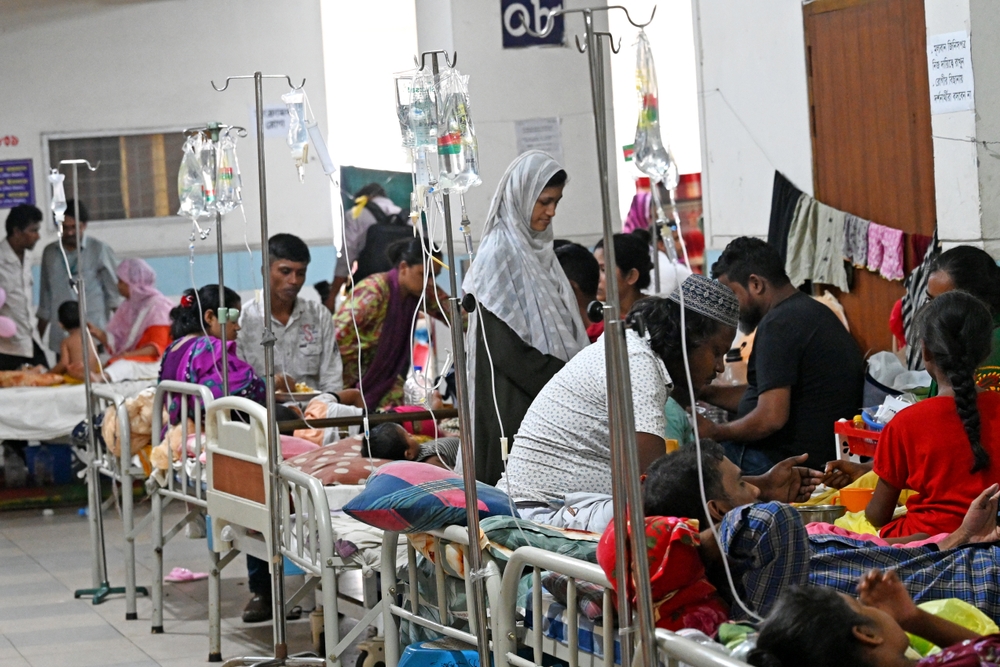A record-breaking dengue outbreak continues to engulf Bangladesh, with 14 deaths and 2,115 new infections reported in just one day. This makes 2023 the most fatal year since the epidemic was first documented in 2000.
O the 14 casualties, 10 occurred in the capital city, Dhaka. Hospitals in the city are overwhelmed with the surge in patients presenting symptoms such as high fever, joint pain, and vomiting. “Facilities are overstretched, but efforts are ongoing to provide adequate care,” health officials remarked.
National Health Stats
According to the Directorate General of Health Services (DGHS), the country has witnessed:
- 671 deaths by 7th September.
- A staggering rise to over 800 deaths by 16th September.
- A total of 138,022 infections by early September, which surged to 164,562 cases by mid-September.
Of those infected, 9,127 are currently undergoing treatment, while 128,224 have been discharged from hospitals.
Month-wise Breakdown The month of September has seen a significant spike in cases:
- 211 deaths in September.
- 342 in August.
- 204 in July.
Likewise, the number of reported dengue cases for each month is:
- 40,754 in September.
- 71,976 in August.
- 43,854 in July.
Monsoon and Mosquitoes
The monsoon season spanning from June to September provides an ideal breeding ground for the Aedes aegypti mosquito – the primary vector for dengue. Stagnant water left by the rains allows these mosquitoes to reproduce, leading to a spike in dengue cases.
Government Response
In light of the worsening crisis, the government has initiated measures to combat the spread of the disease. Efforts are directed towards curbing the mosquito population and raising awareness. However, challenges remain as there is no specific drug or vaccine against dengue.
Dengue in South Asia
Dengue is not a new adversary for countries in South Asia. The region, especially during the monsoon season, becomes a hotspot for dengue due to the prevalence of the Aedes aegypti mosquito. Bangladesh, being a part of this region, faces an annual battle against this debilitating disease.
The WHO has warned that dengue — and other diseases caused by mosquito-borne viruses such as chikungunya, yellow fever and Zika — are spreading faster and further due to climate change.
WHO’s alert and response director, Abdi Mahamud, described such outbreaks as the “canary in the coal mine of the climate crisis.” He explained that climate change and this year’s El Nino warming weather pattern contributed to the severe dengue outbreaks in several areas, including Bangladesh.
Conclusion
In conclusion, the changing patterns of weather and the undeniable effects of climate change play a pivotal role in health crises globally. As exemplified by the severe dengue outbreaks, proactive measures and global cooperation are imperative to address and adapt to these ever-evolving challenges. Bangladesh’s situation is a testament to the broader implications of the climate crisis on public health.














